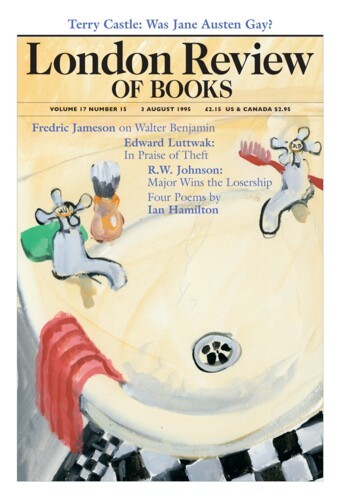An Unfinished Project
Fredric Jameson, 3 August 1995
Walter Benjamin was not a letter writer of the order of Lawrence or Flaubert, for whom the medium of the letter seems to fill a need, not for mere self-expression, but for some larger exercise of the personality in exasperation or enthusiasm, in that almost instinctive enlargement of reaction to things which others find in unmotivated physical activity. Benjamin was, on the contrary, a person of the greatest reserve; even where he lets himself go with people he trusts, one has the feeling not of the revelation of some true inner self but merely of the relaxation of that reserve. The extraordinarily stiff manner of a central European bourgeoisie – which sought no doubt to designate a certain class pride by its eschewal of aristocratic nonchalance and easiness, as well as of the barbarism and ignorance of country nobles in general – is appropriated and made part of the personality, like a mask that grows onto the skin of your face. Such a reserve may well also express fear, both of the rituals of a class you detest and devote your life to undermining, and of the artificialities of the artists who secede from it. It is in any case very European, and has no American equivalent, even where writers like Henry James have thought it desirable to produce one.


